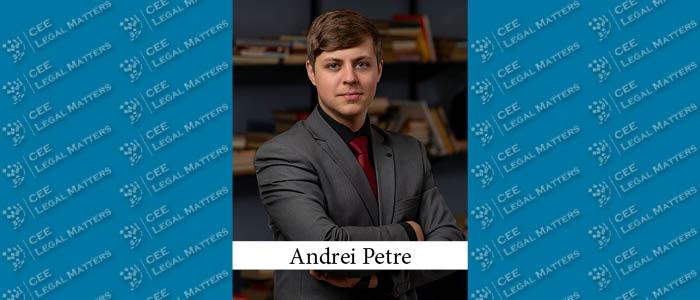2022 was a year of significant legislative changes in the field of competition, and 2023 is set to present several challenges for the business environment. This article discusses three of the most significant competition law challenges faced by Romanian companies in 2023: no-poaching, foreign direct investment (FDI), and abuse of superior bargaining position.
1. NO-POACHING
No-poaching practices are an anti-competitive practice in the labour market. Such practices consist of agreements between two or more companies not to approach or not to hire each other's employees. The Competition Council's investigation into possible no-poaching behaviour comes at a time when competition authorities around the world are taking an interest in anti-competitive agreements between companies in the labour market.
For example, the General Manager of DG Competition has recently announced the entry into a "new era of cartel enforcement", with the European Commission's concern to extend its analysis of the application of Article 101 TFEU (prohibition of cartels) also to no-poaching agreements, and several European national competition authorities (e.g. Lithuania, Hungary, Poland or Portugal) have already sanctioned no-poaching and wage-fixing agreements or published guidelines for employers on how to avoid anti-competitive behaviour in the labour market (e.g. UK). We can therefore expect the Competition Council to intensify such investigations in the future. Fines go up to 10% of the turnover.
Companies should take proactive measures to mitigate risks, such as:
• to carefully analyse the agreement portfolio in order to identify potential risks (especially in terms of no-poaching/no-hire clauses),
• to conduct dedicated training for HR personnel/involved in drafting labour agreements,
• not to agree with competitors on wages/benefits offered to employees,
• not to agree with competitors to prohibit each other from approaching or employing employees,
• not to exchange sensitive information with competitors,
• to review/create clear and comprehensive whistleblowing policies in order to address issues in a timely and internal manner - the Portuguese competition authority stated in early March that the first no-poaching case it investigated triggered an avalanche of complaints from employees and several leniency applications from economic operators, resulting in the authority now having several cases pending in this area.
2. FDI
2022 was an important year for mergers, with the Competition Council clearing a record number of 94 transactions. In addition, Romania adopted GEO No. 46/2022 on measures implementing Regulation (EU) 2019/452 which establishes a framework for the examination of foreign direct investment (FDI) in the EU.
According to the amendments, foreign direct investments and new investments must be authorized by the Commission for the Examination of Foreign Direct Investments ("CEISD") if:
a) they cover areas of strategic activity regulated in general terms by the Supreme Council of National Defence’s decision ("CSAT Decision No. 73/2012"), such as energy security, transport security, security of vital resource supply systems, critical infrastructure, information and communication systems, industrial security etc.
b) the amount exceeds the threshold of EUR 2,000,000 or, by exception, if it does not exceed the threshold, but by its nature or potential effects, may have an impact on public security or public order.
What actions are required?
• from the authorities: the relevant legislation is not yet clear enough for the business environment. Given the significant risks in this area - sanctions of up to 10% of the total worldwide turnover in the financial year preceding the sanction - the authorities need to provide further details on core notions such as the definition of foreign direct investment (e.g., whether intra-group restructuring operations or non-controlling minority shareholdings are included), as well as to clarify the sensitive areas set out in CSAT Decision No. 73/2012;
• from the companies: particular attention should be paid to the draft law seeking the adoption of GEO No. 46/2022, since, according to the form adopted by the Senate, the aim is to extend the scope of the FDI regime to include among the investments to be subject to CEISD authorisation also the investments made by investors from the European Union if they meet the conditions set out above.
3. ABUSE OF SUPERIOR BARGAINING POSITION
Another important change is the transposition into the B2B sphere of an instrument inspired by consumer protection law, by introducing the notion of the abuse of the superior bargaining position. This new instrument regulates the behaviour of important economic operators, but not in a dominant position in the market, towards smaller economic operators in a situation likely to favour the emergence of significant imbalances.
What exactly is forbidden?
The legislation provides an open list of actions or inactions that contravene unfair competition law:
• unjustified refusal to supply or purchase goods or services,
• failure to comply with contractual clauses related to payment, supply or purchase,
• the imposition of unduly onerous or discriminatory conditions in relation to the object of the agreement or the unjustified amendment or termination of commercial relations with the associated company, etc.
What measures should the companies undertake?
• carefully analyse the existence of asymmetry with contractual partners, both at the negotiation stage and during the execution of agreements,
• in relation to these agreements, thoroughly record the actual and real negotiations of the contractual provisions, both at the time of the conclusion of the agreement and afterwards, when it is desired to amend certain contractual provisions, etc,
• given that the assessment of the imbalance must be made globally, to carefully record how the apparent imbalance is in fact justified in the agreement by the rest of the obligations between the parties or by other legitimate reasons, such as peculiarities of the business or established practices in the field of activity concerned, etc.
4. EXPECTATIONS FOR 2023
Overall, companies should be aware of the various challenges posed by competition law in 2023 and take steps to mitigate any potential risks. This may include conducting dedicated training, reviewing and updating policies, and ensuring compliance with all relevant legislation.
In 2023, areas such as energy, electronic products, cement, public procurement, and state aid remain priorities for the Competition Council, where the authority wants to complete more investigations. It is also expected that the Competition Authority will start new investigations depending on the evolution of the markets and the results of the sector investigations, in which it will rely, as before, on dawn raids (in 2022, 18 inspections were carried out, similar to 2021, in which 60 premises/workplaces were inspected), this being the most effective tool of the Competition Council for gathering evidence in proving infringements of competition law.
If the Competition Council wishes to carry out dawn raid at the premises of an economic operator in order to seek relevant information and documents, the representatives of the company must carefully follow the guidelines for compliance with the competition rules and seek expert legal assistance.
To support economic operators, act Botezatu Estrade Partners created Dawn Raid app application.
• an app containing information on the behaviour of persons involved in carrying out a dawn raid
• available for Apple (iOS) or Android phone or tablet, in bilingual format (EN/RO)
• YourRedButton - permanent user contact with our competition team
• one click to contact our team for immediate legal assistance
• the app also allows you to contact a lawyer via email or WhatsApp.
By Andrei Petre, Associate, Act Legal



